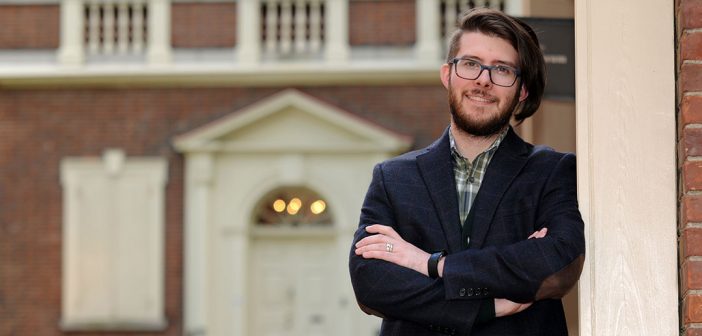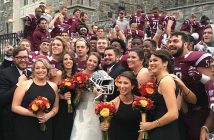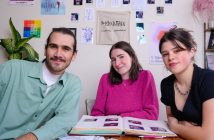A medical writer breaks down complex research to help advance cures
While earning his doctorate in chemistry, studying the finer points of cell division, Evan Smoak made a discovery that had nothing to do with centromeres or proteins or germ lines.
What he discovered was that he loved communicating science. His favorite task was translating jargon into simple narratives that engage an audience and move scientific discussions forward. And it was this realization that brought him to his current job at the crux of research into cancers and rare blood diseases.
Working as a medical writer for a medical consultancy group in Philadelphia, he develops scripts, presentations, and other materials that provide a common vocabulary for everyone involved in creating treatments—from the research lab to the doctor’s office and beyond. His work might help medical thought leaders understand the results of clinical trials, for instance, or help scientists and doctors discuss the feasibility of turning a particular lab result into a treatment, he says.
It’s the kind of work that will grow more important in light of new anti-cancer initiatives like the Beau Biden Cancer Moonshot announced in 2016 by the Obama administration. “As the science becomes more complex and more far-reaching, I think that it’s more and more important to be able to facilitate this kind of dialogue” so that the most promising research avenues get attention, he says.
Before earning his doctorate at the University of Pennsylvania, he co-authored seven articles in scientific journals as a Fordham undergraduate, helped by Fordham grants that allowed him to pursue summer research. He was mentored by chemistry professor Ipsita Banerjee, Ph.D., whose guidance, he says, “was about so much more than just the science; it was about how can you effectively communicate what you’re doing.”
He would eventually like to find creative ways to communicate science clearly to the public.
“We do have a responsibility,” he says, “to be more cogent in the way we put together our science for a nonscientific audience.”



